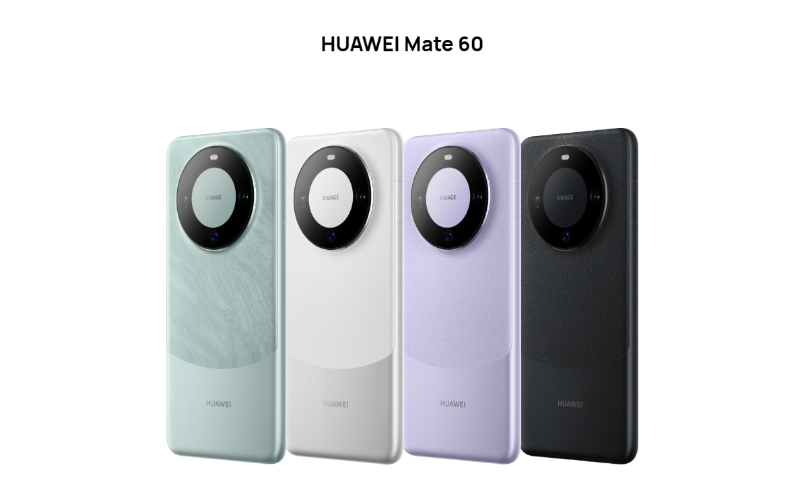
Photo: customers.huawei.com
Yesterday, Huawei suddenly started selling the Mate 60 Pro smartphone online without any notice. And today, they've started selling the standard version of the Mate 60. Thanks to its strong performance, benchmark tests show it runs at 5G speeds, and it's caused a stir in China and on the stock exchange. This will no doubt attract a lot of attention from the United States. Last week, the US Semiconductor Industry Association expressed concern that Huawei was secretly opening a series of semiconductor factories in China, creating a "shadow manufacturing network" to circumvent US sanctions. The United States has filed a complaint with the US Department of Commerce, describing Huawei's progress under the sanctions as a "surprising plot".
Huawei has been very secretive and has not provided any technical details about the Mate 60 series. There are rumors online that the new Huawei phone will use the Kirin 9000S chip instead of the Qualcomm chip. The Kirin chip uses a self-developed Taishan processor architecture, incorporates stacking technology, and is manufactured using 5nm process technology. Moreover, it uses the Harmonios operating system, which makes many people believe that this smartphone is a completely IPR-free smartphone, which is very successful in breaking the US embargo.
If these rumors are true, it would be a major setback to US efforts to control China through chip technology. This means that Huawei has a unique and independent technological and industrial line. He has worked in the chip manufacturing industry with dedication and hard work and achieved tangible results. The US fell short of its goal of moving China towards a 28nm manufacturing process, which could have greatly boosted China's semiconductor industry.
US semiconductor giants, political elites and businesses are baffled by US calls to stop supplying chips, related equipment and chip manufacturing services to China. If Huawei is successful and China overcomes the problem of manufacturing 7nm chips, the Western monopoly of chips and related manufacturing equipment will collapse and many prices will fall to "bargain prices". The United States is facing a major flaw in its strategy to squeeze China out of its main semiconductor sector by restructuring its supply chain.
It can be expected that Washington, strongly stimulated by the Huawei Mate 60, will first try to further increase the sanctions imposed on Huawei and impose export bans on other Chinese companies. However, there are more than 1,000 Chinese companies in the US Department of Commerce's "Company List", and most of the Chinese semiconductor technology companies are on this list. Huawei's disclosure shows that the US sanctions regime itself is contrary to the logic of technological progress and industrial logic, and that the sanctions regime has reached its maximum level of hardening and cannot be further hardened.
The Mate 60, as a true 5G smartphone, has the potential to shape the high-end smartphone market in China. Although the United States imposed sanctions on Huawei for four years, the elites in Washington tried to "shut down" Huawei, but the reality is that they forced and pushed them to build a more powerful Huawei. As a company, Huawei produces the world's most advanced 5G network equipment through the development of chips, high-end smartphones and operating systems. This task requires the cooperation of many Western companies.
Huawei has been falsely accused by the Semiconductor Industry Association, and the underlying fear and hatred towards Huawei shows how pervasive geopolitical thinking is in US media reports. I hope US semiconductor companies are more realistic and use their leverage to force Washington to lift sanctions or significantly ease export restrictions on China. Only then will they have a chance to continue competing with Huawei in the Chinese market. Otherwise, China's chip market structure will inevitably undergo large-scale adjustments, and the world's semiconductor wealth will continue to shift from the West to China. If that happens, there is no one to blame but the arrogant and stupid Washington elite.
The author is a Chinese media expert. opinion@globaltimes.com.cn


Post a Comment